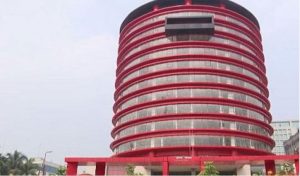Review of progress and achievements in the implementation of the 2030 Agenda in
South and South West Asia. The Challenges of Empowering people, ensuring inclusiveness and equality in South Asia, the theme of HLPF 2019.The complexity of people’s lives and realities are reflected in the intersectional nature of the sustainable development goals and how we are aspiring to implement the 2030 agenda. South Asia is home to nearly forty percent of the world population, yet accounts for less than ten percent of world GDP. It is combined with several paradoxes and enigmas- the highest economic growth that coexists with the high rates of poverty, inequality, malnutrition, and destruction of the natural environment. This Region is also threatened to bear the most devastating impacts of climate change, disaster shocks, increasing frequency of extreme weather patterns with the uneven progress made on the implementation of SDGs.
While appreciating the progress on implementing the SDGs, we remain concerned by several factors underpinning the implementation of the SDGs at regional and national level. While we gather here to discuss the regional level solution, we should not forget the three key principles to implement SDGs like empowerment, inclusion and equality. Even as the spirit of the agenda is leaving no one behind; seas of people are being excluded unseen and unheard of. We need to address the expansion of freedom of choice, equal benefits sharing of resources, the decision making power that affects one’s life and livelihood, and enormous disparity of opportunity, wealth and power in this region.
Nevertheless, the economic dynamism and prospects of South Asia still provide us
confidence to transform itself and build a sustainable future for all. A determined political will is, however, required to expeditiously adopt and implement the 2030 Agenda. We need to mainstream the SDGs into national development plans and budgets and reorient growth frameworks to be inclusive, equitable and promote low-carbon development pathways.
A Substantial focus is needed in critical areas where the region is backsliding, namely on reducing inequalities, promoting peaceful societies, access to justice and strong institutions.
We want to draw your attention to a few core issues that communities are facing on the
ground. On Goal 4, it is evident that in South Asia, the best education is rarely reserved for the poor, for girls, or for children in slum and rural areas, indigenous community and for the refugees. Assessing inequity and exclusion through contextual indicators is pre-requisite for decent work and economic growth under Goal 8 and how we can ensure fairness and equal wage in the job market. While Goal 10, focuses not only on income inequality but also on discrimination, disadvantage and reducing inequality within and between countries.
On Goal 13, we like to re-emphasize that climate change affects the economic, and social rights of communities, countless individuals; and costs of life and livelihood in all aspects. A key SDG priority should be to safeguarding the human rights of people whose lives are most adversely affected. We demand that NDCs must ensure active public participation, access to information, consultation and consent of CSOs and local people. We reiterate our strong opposition to proposals that include agriculture, forests, biodiversity and other forms of land use in global carbon markets and urge you to promote sustainable consumption. We also oppose false solutions like carbon capture, dirty energy mega hydropower and coal mining project, investment, and storage or geoengineering that undermine the environmental integrity in this Sub-region.
The reasons for prioritizing tackling inequality are obvious. It’s a global problem. There are also the issues of gender equality and intergenerational equity: the way economies and societies have traditionally developed has severely compromised the well-being of our people and planet. The Asia-Pacific region must urgently address the large data gaps, which limit a comprehensive and robust progress assessment of the SDGs. The most data-poor SDGs are reduced inequalities (Goal 10), climate action (Goal 13), and peace, justice and strong institutions (Goal 16). National statistical systems in the region must embrace new sources of data and establish new partnerships. In order to achieve better regional cooperation and stability and to leverage on the future economic dividends, the region has to revitalise and move on beyond the confines of SAARC and look for better regional integrity.
We have key recommendations and urge governments to; adopt law with a human rights-based and gender equality approach including on eviction; refugee crisis, ensure visibility of urban and rural poor and recognition as ‘full citizens’; provide adequate opportunities to maintain sustainable living standards including access to quality education, decent employment, transport and decent and equal wage from gender equity perspectives; provide social protection measures; extend participatory governance including participatory budgeting and community monitoring as well as Risk-Informed Development; and finally address root causes of inequality and injustice.
Sustainable development requires us to rethink the development pathways. Can we achieve inclusive growth for all without trashing the environment? Can we take the pledge to secure food, peace and security for the people of this region from this meeting? The solution is in our hand!
(Shaila Shahid, from the International Centre for Climate Change and Development (ICCCAD), Bangladesh, spoke on behalf of the South and South West Asia CSOs and as part of the Asia Pacific Forum on Regional CSOs Engagement Mechanism (APRCEM) at the Asia-Pacific Forum on Sustainable Development, 4th October in New Delhi.).




